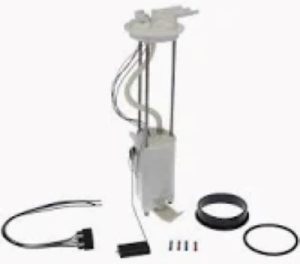Although fuel pumps come as a standard feature in most modern vehicles, not every car depends on these pumps. For example, fuel pumps went from being a centerpiece as carburetors were retired by the fuel injection systems of the eighties, ensuring improved engine efficiency and proper fuel delivery. Fuel delivery was designed to be gravity fed, eliminating the need for a fuel pump – a basic design element found in virtually all carbureted engines (until the 1980s). On the other hand, most modern fuel-injected systems run between 30 and 60 psi—a lot more than a carbureted engine makes—and most require some type of electric pump to maintain pressure and crank the engine.
Electric vehicles (EVs) do not have a fuel pump because they do not have an internal combustion engine (ICE). Since electric engines run on pure battery power they do not require gasoline which is why fuel-related components are completely excluded. For example, the International Energy Agency reported a few years ago that sales of electric vehicles surged 40 percent above levels just a couple of years before, a clear sign that significant adoption of alternatives to traditional fuel systems in automotive applications is taking place.

On a segment of classic car enthusiasts that favor authenticity — those who are rebuilding older, carbureted cars — often keep the original gravity-fed system in place (which kind of defeats the purpose if you ask us) and whether or not fuel pumps are unnecessary? Jay Leno, the consummate classic car collector, proclaims in his garage videos that "not every car needs a fuel pump" to illustrate how varied methods of fuel delivery can be across automotive eras.
It has no fuel pump at all, similar to some off-road and tiny recreational vehicles–ATVs, go-karts and a few motorcycles–whose uncomplicated gravity-bare gas systems could be referred to as returnless. Theoretically, in this type of vehicles fuel consumption was low, and velocity was also lower thus we do not required high pressure fuel pumps which are mandatory for the above discussed next generation gasoline direct injection engines.
The major boost is that fuel pumps are a crucial part of the fuel injection systems in most of today's cars, which are important for fuelling performance and also decreasing discharges. The criticality of fuel pumps in vehicle design just shows in the fact that more than 90% of vehicles on road come equipped with fuel pumps. But even as the auto business adapts in response to changing automotive technology, and EVs gain market share, its dependence on gas is likely to fade slowly. Learn More About Fuel Pump To access more information about fuel pumps and its role in the design of an automobile.